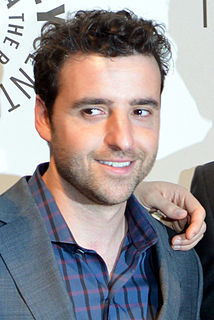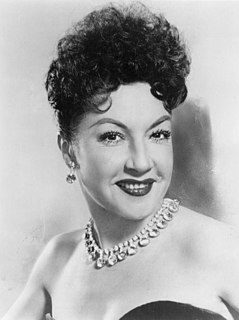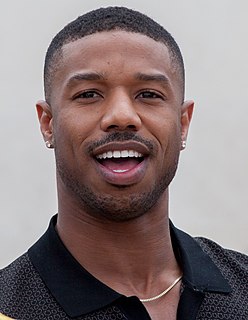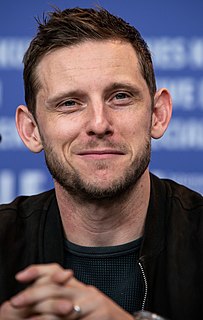A Quote by Stephen J. Dubner
'Freakonomics' began with a 'N.Y. Times Magazine' profile I wrote about Steve Levitt. I was working on a book about 'the psychology of money,' and since Levitt's an economist, my editor thought I'd be the guy to write about him. Fact is that Levitt has almost no interest in either psychology or money.
Related Quotes
I don't know when we made [10 Things I Hate About You] that we ever thought it would last in popularity as long as it has, but I think that speaks to the strength of the bond of the cast when we were making it. I think you can tell that we adored each other and that we were real friends. To this day, Joe Gordon-Levitt is a good friend, and obviously Heath [Ledger] was a great guy.
I was in a pharmacy and I saw the warnings on the backs of poisonous substances, and I thought, "Well, that's what I can do." So I wrote a list of ingredients in the book, and warnings that they shouldn't consume those ingredients. The editor and the publisher thought that it was a great way to go in terms of reverse psychology, but it honestly hadn't occurred to me that it was reverse psychology. I just thought that it was sort of an honest assessment making clear that if you were timid or easily disturbed, you could turn away.
My last point about getting started as a writer: do something first, good or bad, successful or not, and write it up before approaching an editor. The best introduction to an editor is your own written work, published or not. I traveled across Siberia on my own money before ever approaching an editor; I wrote my first book, Siberian Dawn, without knowing a single editor, with no idea of how to get it published. I had to risk my life on the Congo before selling my first magazine story. If the rebel spirit dwells within you, you won't wait for an invitation, you'll invade and take no hostages.
Until the early 90s, when I was working on a project about the idea of free will in American philosophy. I knew that Lincoln had had something to say about "necessity" and "fatalism," and so I began writing him into the book. In fact, Lincoln took over. I wrote instead 'Abraham Lincoln: Redeemer President,' in 1999, and I've splitting rails with Mr. Lincoln ever since. If there's a twelve-step process for this somewhere, I haven't found it yet.
About a year after (my stories began being published), magazine editor George Scithers, suggested to me that since I was so new at being published, I must be very close to what I had to learn to move from fooling around with writing to actually producing professional stories. There are a lot of aspiring writers out there who would like to know just that. Write that book.SFWW-I is that book. It's the book I was looking for when I first started writing fiction.
Filmmaking isn’t if you can just strap on a camera onto an actor, and steadicam, and point it at their face, and follow them through the movie, that is not what moviemaking is, that is not what it’s about. It’s not just about getting a performance. It’s also about the psychology of the cinematic moment, and the psychology of the presentation of that, of that window.
I took to writing as my medicine to help me stay afloat in acting career journey. I wrote about me breaking hearts, and my heart being broken. I wrote about my views whether they were liberal or conservative. I wrote about everything. I wrote about my life. When I did not have paper coming in as green backs, I'd use random pieces of paper for stories. It was like, I got no money, but I have paper to write. So I wrote.
































